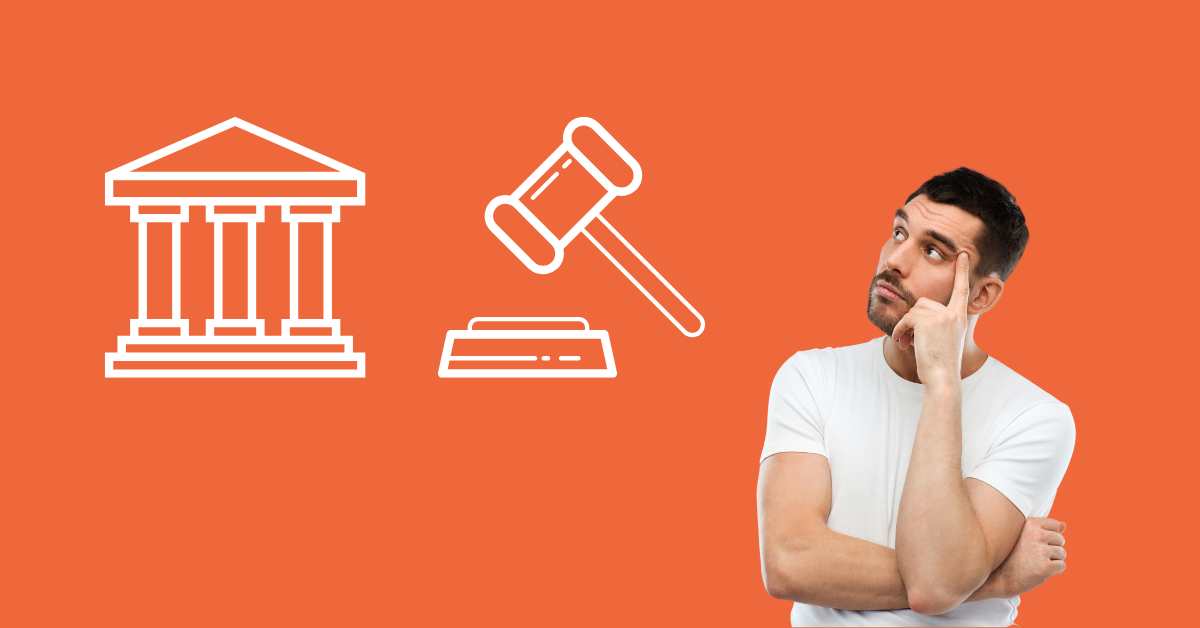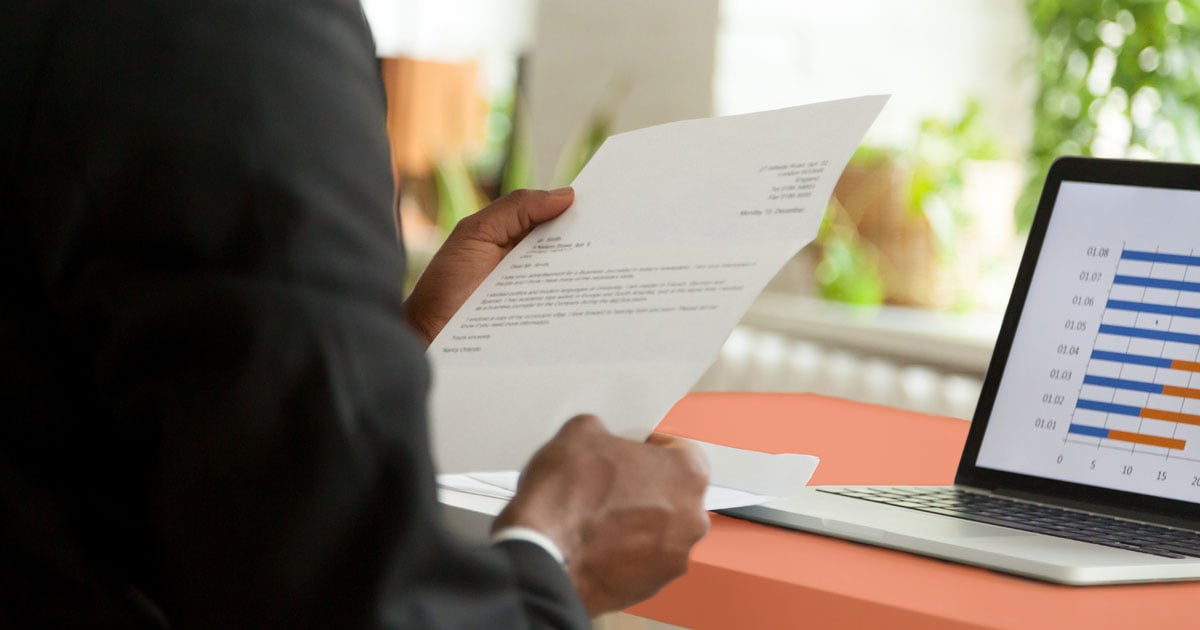Facing a debt collection lawsuit is a stressful experience. Many individuals find themselves in this situation, often feeling overwhelmed by the prospect of legal action over unpaid debts.
But what happens if you lose a debt collection lawsuit?
Understanding the potential outcomes and implications is crucial for anyone navigating this challenging scenario. In this article, we will explore the consequences of losing a debt collection lawsuit, the next steps you might face, and important factors you should consider moving forward.
Whether you're in the midst of a legal battle or simply curious about the process, this guide aims to equip you with the knowledge you need to make informed decisions.
How do debt collection lawsuits work?
Debt collection lawsuits are a structured legal process initiated by creditors or collection agencies to recover outstanding debts from individuals or businesses. Understanding how these lawsuits work can help debtors navigate the complexities of the legal system and understand what happens if you don't show up to court for debt collection.
The initiation of the lawsuit
The process typically begins when a creditor, having exhausted all other efforts to collect the debt — such as phone calls, debt collection letters, and payment plans — decides to escalate the matter to court. The creditor or their representative files a complaint with the local court, outlining the details of the debt and why they believe the debtor owes the money. This complaint serves as a formal request for judicial intervention.
Serving the debtor
Once the complaint is filed, the next step is to serve the debtor with the lawsuit papers. This is a critical step, as the debtor must be notified of the lawsuit in order to respond. Service can be done in various ways, depending on local laws, including personal delivery, certified mail, or sometimes even through publication if the debtor's whereabouts are unknown.
The debtor's response
Upon receiving the lawsuit papers, the debtor typically has a limited amount of time — often between 20 to 30 days — to respond. This response is known as an "answer." It is crucial for the debtor to file an answer within this timeframe; failing to do so may result in a default judgment against them, meaning the court will rule in favor of the creditor without the debtor's input.
In their answer, the debtor can contest the claims made by the creditor, assert defenses, or negotiate terms. Common defenses include disputing the validity of the debt, claiming that the debt is beyond the statute of limitations, or asserting that the amount is incorrect.
Court proceedings
If the debtor responds to the lawsuit, the case moves forward to court. Both parties may present their evidence and arguments. This could involve providing documentation such as payment records, contracts, or correspondence related to the debt. Depending on the jurisdiction and the complexity of the case, it may proceed to a hearing or trial.
The judge will evaluate the evidence and arguments presented by both sides before making a ruling. If the court finds in favor of the creditor, a judgment is issued, confirming the debtor's obligation to repay the debt.
Post-judgment actions
Should the creditor win the lawsuit, they have several legal avenues to pursue collection of the judgment. This often includes wage garnishment, where a portion of the debtor's paycheck is withheld and sent directly to the creditor, or bank levies, which allow creditors to seize funds directly from the debtor's bank account. Additionally, creditors may place liens on the debtor's property, which can complicate future sales or refinancing efforts.
What happens if you lose a debt collection lawsuit?
Losing a debt collection lawsuit can have serious financial and legal repercussions. When a creditor successfully proves their case in court, a judgment is issued against you, which confirms your obligation to repay the debt along with any additional fees, interest, and court costs. Understanding the implications of this judgment is crucial for navigating the aftermath of a lost lawsuit.
1. Judgment against you
So, what happens if you lose a debt collection lawsuit? Once a judgment is entered, it solidifies the creditor's victory and specifies the amount you are required to pay. This legal declaration is not just a formality; it becomes an enforceable order directing you to satisfy the debt. Failure to comply with the judgment can lead to further actions from the creditor.
2. Wage garnishment
One of the most common consequences of losing a debt collection lawsuit is wage garnishment. If a creditor obtains a judgment, they can request that your employer withhold a portion of your earnings, typically a percentage of your gross wages, to pay off the debt. This process can significantly impact your monthly budget and financial stability, as it reduces your take-home pay.
3. Liens on property
A judgment can also result in a lien on your property. A lien is a legal claim against your assets, such as your home or car, that allows the creditor to collect what they are owed upon the sale of the property. This means you may be unable to sell or refinance your property without first settling the debt, which can complicate your financial situation further.
4. Bank account levies
If you lose a lawsuit, the creditor may also pursue a bank account levy. Through this process, they can freeze your bank account and withdraw funds directly to satisfy the judgment. This can lead to unexpected financial strain, as access to your funds may be temporarily restricted, and it could leave you in a precarious position to meet daily expenses.
5. Impact on credit score
Although judgments may not always be directly reported on your credit report, they can still significantly affect your credit score and future creditworthiness. Lenders often consider public records, including judgments, when evaluating loan applications. Consequently, having an outstanding judgment may hinder your ability to obtain credit, and you may find that lenders require the judgment to be satisfied before approving any new credit accounts.
6. Emotional and psychological effects
The repercussions of losing a debt collection lawsuit extend beyond financial consequences. The stress and anxiety associated with facing financial uncertainty can take a toll on your mental well-being. You might experience feelings of embarrassment or stigma related to debt, which can strain personal relationships and impact your overall quality of life.
What to do after losing a debt collection lawsuit?
Losing a debt collection lawsuit can seem very final, but it’s not the end of the road. There are several steps you can take to manage the situation effectively and mitigate further financial repercussions. Here’s a guide on what to do after a judgment has been entered against you:
1. Review the judgment
The first step is to carefully review the judgment issued by the court. This document will detail the amount you owe, including the original debt, any accrued interest, attorney fees, and court costs. Understanding the specifics of the judgment allows you to identify what you are being held liable for and prepares you for your next steps.
2. Understand your rights
Familiarize yourself with your rights as a debtor. In many jurisdictions, laws exist to protect debtors from unfair collection practices. For example, debt collectors cannot engage in harassment or threaten you with actions they cannot legally take. Knowing these rights will empower you to respond appropriately if the creditor attempts to collect the debt in a manner that violates the law.
3. Evaluate your financial situation
Assess your financial circumstances to determine your ability to pay the judgment. Consider your income, expenses, and any other debts you may have. If paying the full amount immediately is not feasible, you may have options such as negotiating a payment plan with the creditor or exploring settlement offers that could reduce your overall debt.
4. Explore options for appeal or modification
If you believe the judgment was entered in error or if there are grounds for an appeal, consult with a legal professional immediately. There may be specific time limits for filing an appeal, so it’s crucial to act quickly. Additionally, if your financial situation has changed significantly since the judgment was rendered, you might be able to request a modification of the payment terms or seek relief from the court.
5. Communicate with the creditor
Open lines of communication with the creditor or their representative can often lead to more favorable terms. If you're unable to pay the judgment in full, consider proposing a payment plan or a reduced lump-sum settlement. Many creditors prefer to recover some portion of the debt rather than pursuing lengthy collection processes or finding out how much do debt collectors pay for debt.
6. Prepare for potential enforcement actions
Be aware that if you do not pay the judgment, the creditor can take enforcement actions such as wage garnishment, bank levies, or placing liens on your property. If you’ve lost a lawsuit, it’s important to prepare for these possibilities. Ensure that your employer and bank are aware of your situation, and keep track of your finances to avoid unexpected deductions or freezes.
7. Consider legal assistance
Engaging a legal professional can provide significant benefits post-judgment. An attorney can help you understand your options, negotiate with creditors, and navigate any legal proceedings that may arise. If you cannot afford legal representation, explore local legal aid organizations that may offer assistance at reduced rates or for free.
8. Stay organized and document everything
Keep detailed records of all correspondence with creditors, payment plans, and any legal documents related to the judgment. This documentation will be invaluable should any disputes arise in the future or if you need to present your case to a legal professional or the court.
Key takeaways
Understanding the implications of losing a debt collection lawsuit is vital for anyone facing such circumstances. Here are the essential points to remember:
- Judgment consequences: Losing a debt collection lawsuit typically results in the court awarding a judgment against you, which means you are legally obligated to repay the debt.
- Potential enforcement actions: If you fail to pay the judgment amount, creditors have the right to pursue enforcement actions, including wage garnishment, bank levies, and property liens, which can significantly impact your financial situation.
- Explore payment options: After losing the case, consider reaching out to the creditor to discuss possible payment arrangements. Open communication can lead to more manageable solutions, such as payment plans or negotiated settlements.
- Appeal possibilities: If you believe the judgment was reached in error, consult with an attorney about the feasibility of filing an appeal. Timeliness is crucial, as there are deadlines associated with the appeal process.
- Documentation is key: Maintain thorough records of all interactions with creditors and keep copies of all legal documents. Good documentation can protect you in case of future disputes and assist any legal representation you might engage in.
FAQs
How to prevent a debt collection lawsuit?
To prevent a debt collection lawsuit, it's essential to create and adhere to a realistic budget that outlines your income and expenses, allowing you to prioritize and manage your debts effectively. Additionally, maintaining open lines of communication with your creditors can facilitate negotiations for repayment plans or settlements, reducing the likelihood of legal action.
Can bankruptcy halt creditor actions and their long-term implications?
Filing for bankruptcy can effectively halt creditor actions through an automatic stay, a legal order that immediately stops all collection efforts, including lawsuits, wage garnishments, and repossessions. This provides individuals with essential breathing room to reorganize their finances and develop a strategy for addressing their debts. However, while bankruptcy offers immediate relief, it also carries significant long-term implications.
How to get rid of a credit card debt settlement judgment?
To effectively address a credit card debt settlement judgment, consider several viable options. First, paying off the judgment in full can resolve the debt, though this may not always be feasible due to added interest and fees. If immediate payment isn’t possible, negotiating a settlement with the creditor can be a practical approach, often resulting in a lower lump-sum payment or a manageable payment plan over time.
What does the creditor have to do to collect the money you owe?
To collect the money you owe, a creditor must adhere to specific legal protocols and guidelines established by federal and state laws. Initially, they may attempt to contact you directly, often through letters or phone calls, to request payment and provide information about the debt. If these informal efforts fail, the creditor may escalate the situation by assigning the debt to a collection agency or hiring an attorney to pursue the matter further.
How can you stop a creditor from taking your money and things?
To stop a creditor from taking your money and belongings, it is crucial to understand your rights and the protections available under the law. Start by responding promptly to any demand letters, disputing the debt if you believe it is invalid or requesting proof of its legitimacy. If you can demonstrate that your income and assets are exempt from collection, such as certain personal property or a portion of your wages, inform the creditor of these exemptions to potentially halt their collection efforts.




